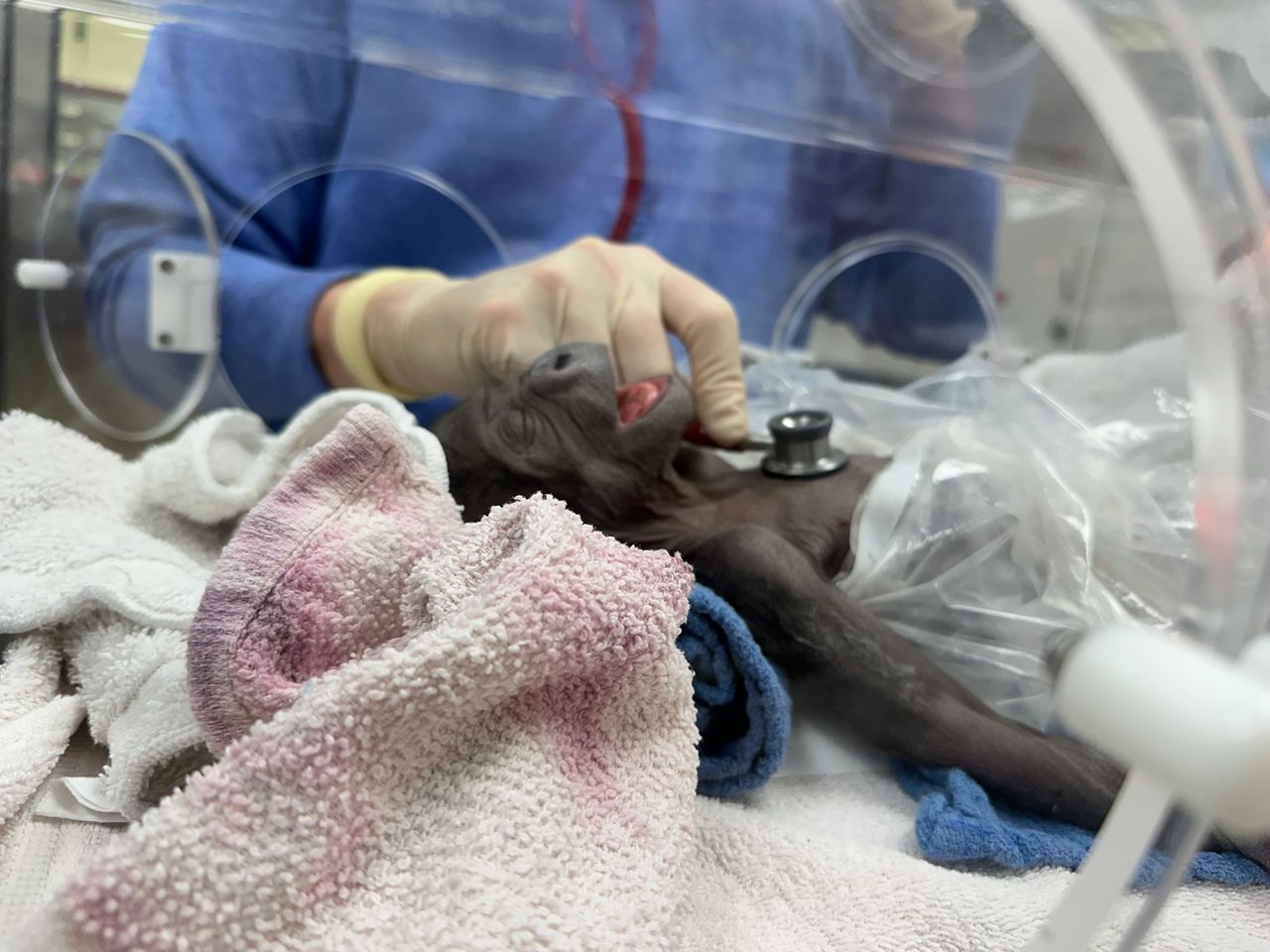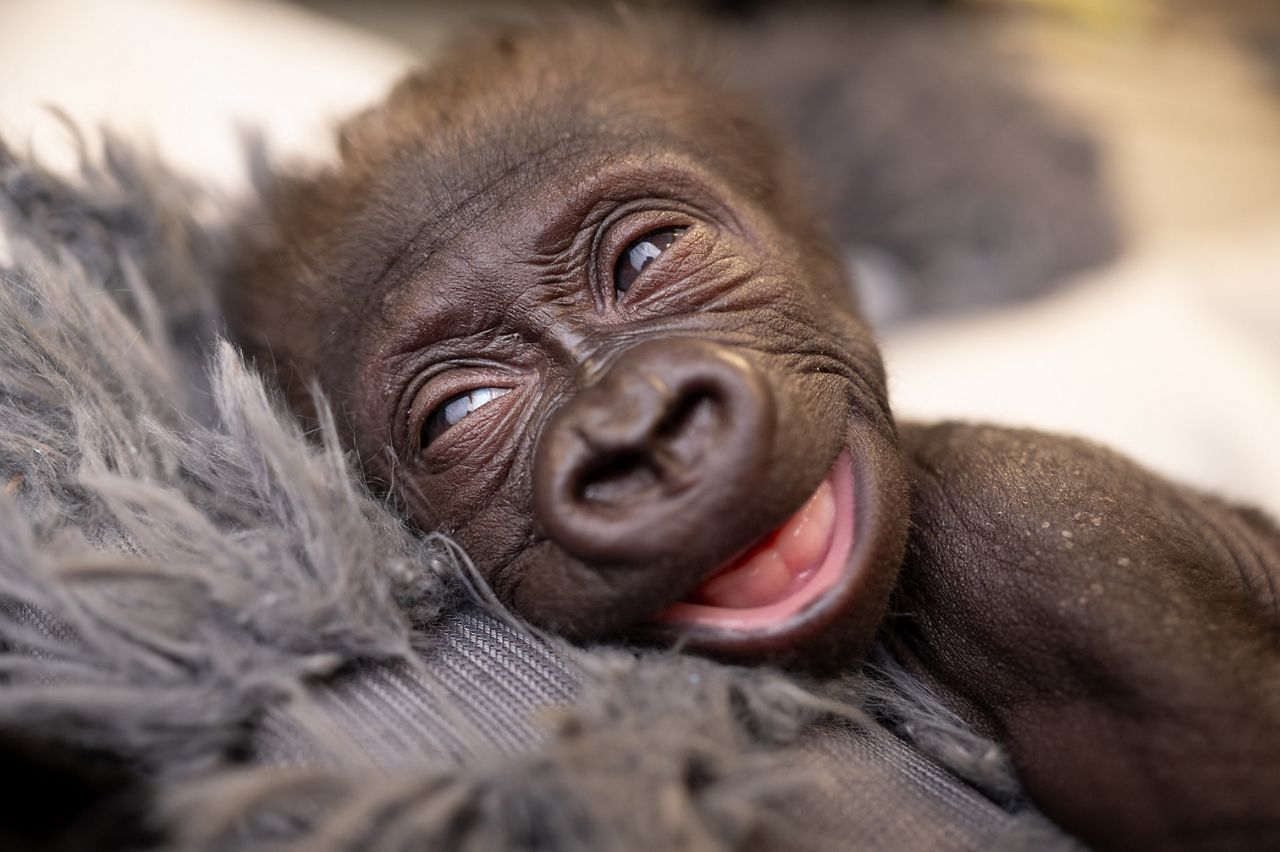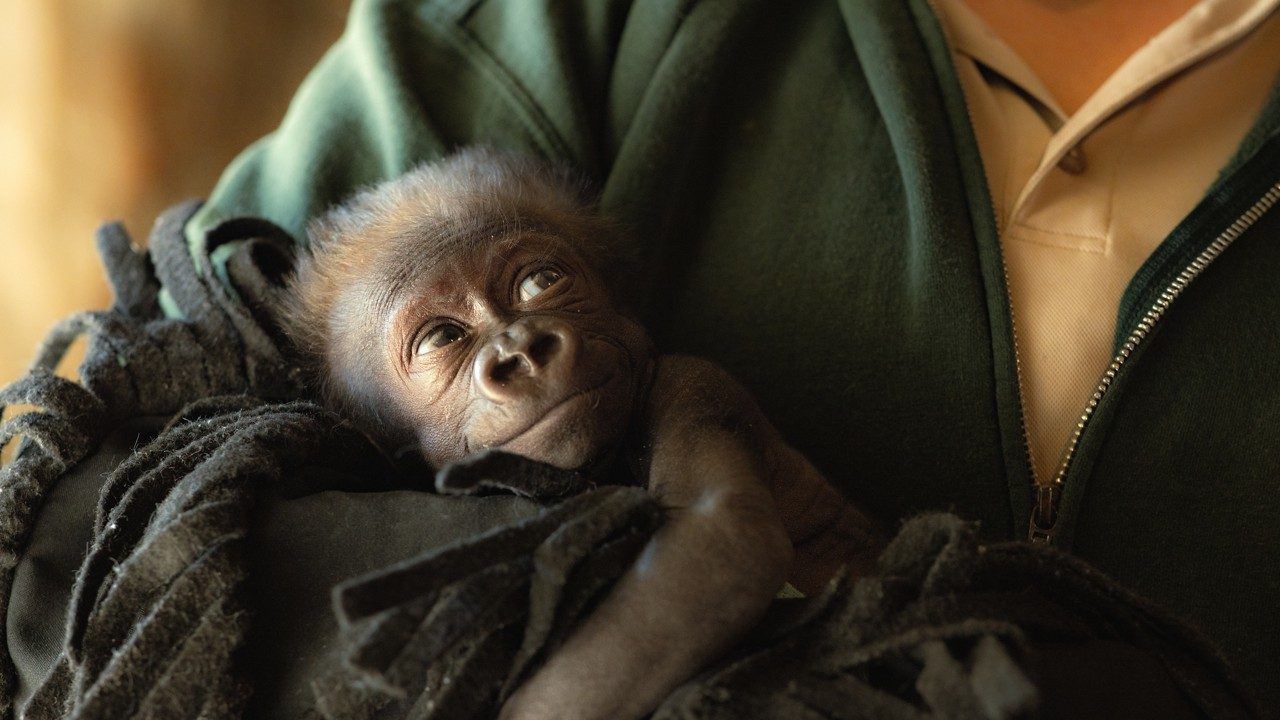FORT WORTH, TEXAS — The Fort Worth Zoo announced the birth of a female gorilla successfully delivered via emergency cesarean at the Zoo on Jan. 5, after life-threatening complications affected the health of the mother.
This is the first gorilla to be born via cesarean section at the zoo. Both mom and baby required life-saving care from medical experts from the human world.
The mom, 33-year-old Sekani, was pregnant with her fourth offspring and had a routine pregnancy with an expected due date of early- to mid-February. On Jan. 3, zookeepers observed Sekani moving slowly and holding her head, as if she had a headache. Sekani was exhibiting symptoms of preeclampsia, a serious blood-pressure condition that can occur during pregnancy in both humans and primates. After testing confirmed the diagnosis, zoo veterinarians knew they had to intervene and consulted with a local obstetrician and neonatologist. Everyone agreed that an emergency cesarean was necessary to save Sekani and give her unborn baby the best opportunity to survive.
On Jan. 5, the zoo’s veterinary team, along with help from Dr. Erwin, Neonatologist Robert Ursprung, M.D., Dennis Occkiogrosso, CRNA and supporting experts, successfully performed Sekani’s cesarean and care of the premature female gorilla. Her name is Jameela, which means “beautiful” in Swahili.

“Taking part in delivering Sekani’s infant via cesarean section was one of the highlights of my entire career as an OB-GYN,” said Dr. Erwin of the procedure. “It is an honor and privilege to assist with care for this endangered species and to share my expertise with the veterinary staff at the Fort Worth Zoo. I was amazed at how Sekani’s anatomy matched that of my human patients.”
The baby was born four to six weeks early and required immediate intervention. Dr. Ursprung assisted the zoo’s team with resuscitation and stabilization, respiratory support, radiographs and serial examinations of the premature gorilla. Throughout the last four weeks, he has provided volunteer consultations with zoo staff to help optimize temperature regulation and nutritional strategy, including oral feeding.
“It was incredible how similar this mother-infant pair was compared to what I see in the hospital for babies born under similar circumstances,” said Dr. Ursprung. “The baby needed critical respiratory support for a few hours post-delivery, but as she transitioned to life outside the womb, she stabilized quite nicely. She had so many features typical of a slightly premature human baby.”
The zoo began around-the-clock care and feeding Jameela while Sekani recovered from her procedure. Despite repeated attempts to reunite the mother and baby, Sekani showed little interest in caring for Jameela. Though it’s hard to determine the exact reason, zoo experts suspect Sekani never experienced the hormonal cues that come during natural and full-term birth, therefore resulting in disinterest in the baby.
After two weeks of unsuccessful reunification attempts, staff shifted focus to training 24-year-old female gorilla Gracie to become a surrogate mother to the now-thriving Jameela. She has two offspring of her own, and zookeepers are hopeful Gracie will be an ideal surrogate mother for the new baby.
“Observing our staff and their continuous commitment to this baby and the subsequent surrogacy journey is a testament to their dedication to the animals in their care,” said Michael Fouraker, executive director of the Fort Worth Zoo. “It’s been incredibly inspiring to witness and we are all hopeful that we can continue to watch this little one grow.”




